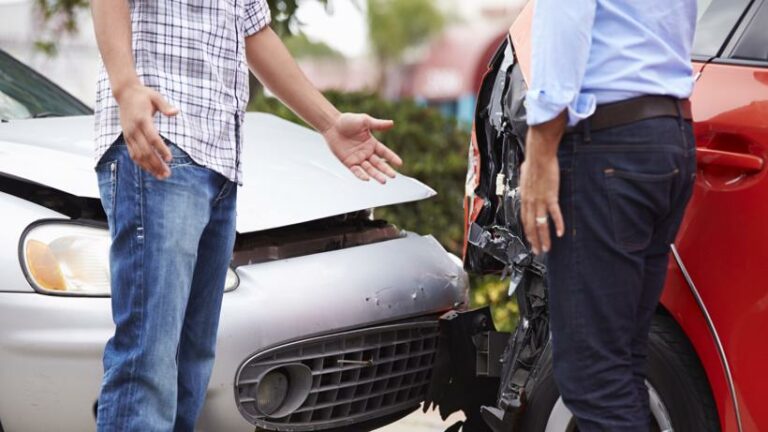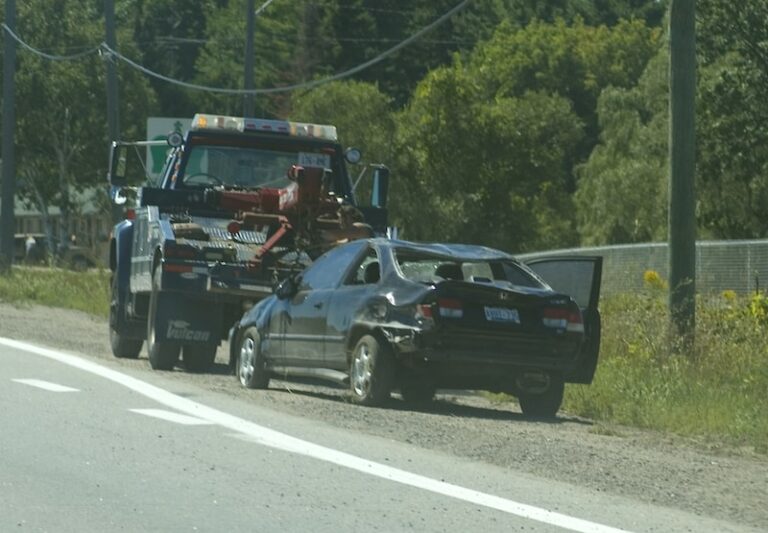Founder of Wade Law and expert trial attorney with experience in the courts and in the classroom, lecturing in several courses. Admitted to all of Georgia’s courts and the United States Supreme Court
Rights of Passengers in a Georgia Car Accident
At Wade Law Office, we focus on protecting the rights of injured passengers and holding negligent drivers and companies accountable. Our team has deep knowledge of Georgia law and experience handling car accident claims in Fayette County and across the state. We work directly with clients to secure fair compensation for medical expenses, lost wages, and future needs. Every case is personal, and we are committed to providing strong legal service with clear guidance from start to finish.
Passengers often face serious injuries in a crash, yet many do not realize they have strong legal protections under Georgia law. Unlike drivers, passengers are rarely at fault and have clear rights to medical care, police reports, and compensation for the costs that follow an accident. Understanding these rights helps injured passengers act quickly, protect their claims, and secure the support they need for recovery.
A Fayetteville car accident lawyer can guide passengers through the process and ensure that responsible drivers, companies, or other parties are held accountable.
The Legal Duty of Care Owed to Passengers
Passengers have specific rights under Georgia law when they are involved in a crash. The law sets clear expectations for drivers and other road users to protect the safety of those they carry.
Duty of Care in Georgia
Drivers in Georgia must act with ordinary diligence to avoid harm to passengers and other travelers on the roadway. Under O.C.G.A. § 51-1-2, ordinary diligence means the care a reasonable person would use in similar situations. This duty applies to almost all drivers, whether operating private vehicles, company cars, or public transportation services.
Responsibility of Drivers and Road Users
The duty of care extends beyond the person behind the wheel. Other drivers, cyclists, and pedestrians must follow traffic laws and regulations that protect passengers and reduce risk. When a driver fails to obey speed limits, traffic signage, or weather-related restrictions, passengers can be placed in danger. Roadway safety depends on compliance from all road users, not only the driver carrying passengers.
When Duty Is Breached
If a driver or other party fails in their duty, passengers have the right to pursue compensation. A failure may include distracted driving, driving under the influence, or ignoring roadway hazards. In these cases, the law holds the responsible person or organization accountable for injuries and costs that affect the passenger’s life and future travel.
Immediate Passenger Rights After a Crash
After a crash in Georgia, passengers hold clear rights that begin at the scene and continue through the investigation and claims process. These rights are designed to protect their health, safety, and access to compensation.
Right to Medical Attention
Passengers have the right to receive immediate medical care after an accident. Emergency services must be called if injuries appear serious. Even if injuries seem minor, passengers should seek treatment to create a medical record that connects the injury to the crash. These records are critical when determining future costs and claims.
Right to File a Police Report
Georgia law requires that crashes involving injury, death, or property damage over $500 be reported to police. Under O.C.G.A. § 40-6-273, passengers can request that a report be filed and may obtain a copy for their records. Police reports document the drivers, vehicles, location, weather, and roadway conditions, which later help determine responsibility.
Right to Access Crash Data and Investigation Findings
Passengers may access investigation findings from law enforcement and the Georgia Department of Transportation. These records include crash data, roadway safety notes, and officer accounts of what happened. Having access to this information strengthens a passenger’s claim and helps a Fayetteville car accident lawyer build a case.
Right to Compensation
Passengers can seek compensation for medical bills, lost wages, property damage, and pain and suffering. This right extends to future costs if the injury affects life beyond the crash date. Compensation can come from one or both drivers, their insurance companies, or other responsible parties such as employers or vehicle owners.
Who Can Be Held Responsible?
When passengers are injured in a Georgia crash, several parties may be responsible. Liability depends on how the accident happened and which road users failed to meet their legal duties.
Other Drivers
If another driver caused the collision by speeding, failing to obey signage, or driving while distracted, that driver can be held liable. Passengers may file claims against the at-fault driver’s insurance company to recover costs for medical care, property damage, and future expenses linked to the crash.
Vehicle Owners
In some cases, the owner of the vehicle may share responsibility. Under Georgia law, an owner who allows another person to drive their car can be held accountable if the driver’s negligence leads to injury. This principle applies even if the owner was not present at the time of the crash.
Employers and Companies
When a driver is operating a vehicle for work, such as a delivery truck or company car, the employer may also be liable. Businesses that employ drivers must ensure that employees are trained, that vehicles are safe, and that federal requirements for transportation are followed. If these standards are ignored, passengers have a right to seek compensation from the company.
Government Agencies and Roadway Conditions
Sometimes, hazardous roadway conditions or improper signage contribute to a crash. Government departments and contractors responsible for roadway safety may share responsibility if their failure to act caused or worsened the accident. Passengers can seek legal help to investigate whether poor roadway design, lack of signage, or unsafe construction zones played a role.
Compensation Available to Passengers
Passengers injured in a Georgia crash have the right to pursue compensation. The amount and type of recovery depend on the injuries, the evidence in the police report, and the insurance coverage available.
Medical Expenses
Passengers may claim the full cost of medical care, including hospital bills, surgeries, physical therapy, and rehabilitation. Future medical costs are also recoverable if the injury requires long-term treatment. Records from doctors and hospitals serve as evidence to determine the proper amount.
Lost Wages and Loss of Earning Capacity
If injuries prevent a passenger from returning to work, they may recover lost wages. In severe cases where injuries affect future employment, passengers can seek compensation for reduced earning capacity. This includes both current income loss and long-term impact on a person’s ability to support themselves or their family.
Property Damage
Passengers may be reimbursed for damaged personal property such as phones, laptops, or other items carried at the time of the crash. Claims can include repair costs or replacement value, depending on the item and proof of damage.
Pain and Suffering
Compensation extends beyond financial losses. Georgia law allows passengers to claim for physical pain, mental distress, and the disruption of daily life caused by the crash. The amount depends on the severity of injuries, the length of recovery, and how much the injury affects normal activities.
Wrongful Death Benefits
If a passenger dies as a result of a crash, surviving family members may pursue a wrongful death claim under O.C.G.A. § 51-4-2. Compensation may include the full value of the deceased person’s life, funeral expenses, and the emotional loss suffered by the family.
Limits and Restrictions on Passenger Claims
Passengers in Georgia must follow specific rules when filing claims. These limits and restrictions affect how much compensation they can receive and whether their case can move forward in court.
Statute of Limitations
Passengers generally have two years from the date of the crash to file a personal injury claim. This deadline is set under O.C.G.A. § 9-3-33. If a claim is not filed within this time, the right to compensation may be lost.
Insurance Policy Limits
Compensation is often limited by the insurance coverage available. If the at-fault driver carries only the minimum required coverage, the payout may not cover all costs. In these cases, passengers may need to pursue other drivers, companies, or owners involved in the crash to recover the remaining damages.
Shared Responsibility and Comparative Negligence
Georgia follows a modified comparative negligence system under O.C.G.A. § 51-12-33. If a passenger’s actions contributed to the crash, such as distracting the driver or ignoring safety rules, their compensation may be reduced. If the passenger is found 50 percent or more responsible, they cannot recover damages.
Delays and Failure to Act
Waiting too long to seek medical attention, failing to collect police reports, or not documenting injuries can weaken a passenger’s case. Insurance companies and other parties often use these gaps as reasons to deny or limit payouts. Acting quickly is critical to protect the rights of passengers and preserve key evidence.
Steps Passengers Should Take Immediately After a Crash
Passengers can protect their rights by taking specific steps after a crash. These actions help preserve evidence, support claims, and ensure access to compensation under Georgia law.
Seek Medical Help
Passengers should seek medical attention right away, even if injuries appear minor. A doctor’s report creates a direct link between the crash and the injury. This medical record is essential for claims covering current and future costs.
Contact Police and File a Report
Passengers should make sure the crash is reported to police. Under state law, accidents involving injury, death, or significant property damage must be documented. The police report includes details about drivers, vehicles, weather, and roadway conditions that help determine who is responsible.
Collect Evidence at the Scene
If possible, passengers should gather driver contact information, insurance details, and witness statements. Photos of vehicles, signage, and roadway hazards may also be useful. These records can affect how much compensation is available and show how the crash happened.
Keep Records of Expenses and Losses
Passengers should keep receipts, bills, and notes about all crash-related costs. This includes medical expenses, lost wages, transportation, and property repairs. Clear documentation supports claims and limits disputes with insurance companies.
Contact a Fayetteville Car Accident Lawyer
Speaking with a Fayetteville car accident attorney ensures that legal rights are protected. An attorney can review the police report, investigate hazardous roadway conditions, and handle communication with insurance providers. Early legal guidance helps passengers avoid mistakes that weaken their claims.
Contact an Experienced Fayetteville Car Accident Attorney Today!
If you’ve been injured as a passenger in a car accident, don’t navigate the legal process alone. Our experienced team at Wade Law will fight to protect your rights and ensure you receive the compensation you deserve. Contact us for a free consultation to understand your legal rights and seek compensation. Let us handle the complexities of your case while you focus on recovery.
Contact us at 770-282-1188 for a free case review!












